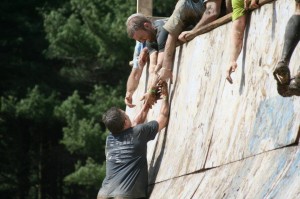March Madness is always my favorite time of the sporting year. On my flight to Austin yesterday I read a great article in the New York Times that provided a nice reminder about how the “Games Are Big, but Life is Bigger”.
Why is basketball so special and important to me? Even though it has been 20 years since I graduated from high school, I still feel a great deal of loyalty, appreciation, and pride for High School Basketball Coach, Coach Gray. Many of the lessons he imparted to us as juniors and seniors have stayed with me to this day, and it seems a bit strange now to think that in the course of my life, one of the most important and inspiring teachers I ever had was a coach. Somehow, through his leadership, he was always able to get the most out of us, his players.
Leadership is a skill that is required in business as much as it is in sports. Take channel marketing and sales leaders, for example. Much of your efforts are spent designing, implementing, and marketing the perfect partner program. Discounts structures, rebate tiers, MDFs, CO-OPs, partner benefits, etc., are all foundations for any Channel Partner Program. In fact, Move the Channel has published its own Channel Marketing Guide and RIMES Chart to serve as a sort of “playbook” for all of these critical features.
But even if you have the best playbook in the business, it’s difficult to get the best results without an effective “coach” to implement the plays and motivate the “players.” These coaches are the people in your channel organization who interface directly and consistently with your channel partners. They are the people selling in the field whose compensation is linked to the partners they support. In many organizations, their main role is to “manage” their accounts; but if they’ve never managed (or coached) before, they might have a hard time doing this efficiently, with deals only getting done when they are heavily involved.
The people that interface with your channel partner need to have a coach’s mentality. All too often in business we have a first practice, hand out the playbook, and check back in the next quarter to review how many rebounds, assists, and points the partner and partner’s salespeople scored for our team. These partner “coaches” need to recognize the partner’s strengths and weaknesses in order to identify how that partner might best contribute to the “team.” This takes time, energy, organization, and leadership—basically a coach’s approach. In the short term, this can lead to increased mind share, market share, and sales. In the long-term, you will have a partner who is loyal and appreciative, and who takes pride in working with your championship-caliber organization. Just don’t expect them to call you “coach.”
Enjoy the rest of March Madness and make it a great week!
Move the Channel,
Travis




